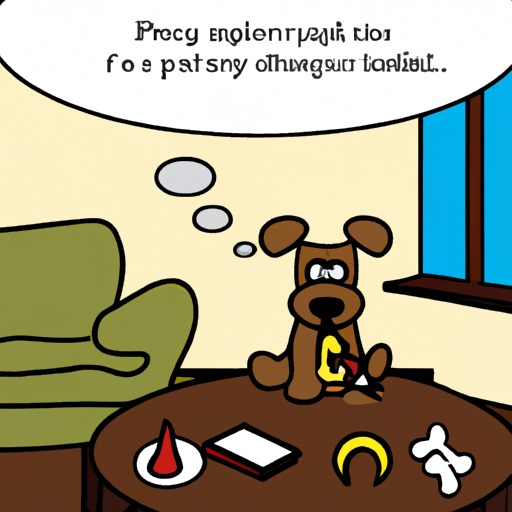As a caregiver, it’s essential to understand the behaviors of those under your care. This is true for humans and for our canine companions. In this guide, we’ll delve into the reasons why dogs chew on their tails.
H2: Understanding Canine Behavior
To understand why dogs chew on their tails, you must first understand basic canine behavior. Dogs use their bodies to communicate, express emotions, and interact with their environment. Chewing, in particular, is a natural behavior for dogs. They chew to explore their environment, relieve boredom, and alleviate stress or anxiety.
Chewing becomes a concern when it turns into an obsessive behavior. Obsessive tail chewing can lead to skin infections, hair loss, and severe injuries.
H2: Common Causes of Tail Chewing
There are several reasons why your dog might start chewing its tail. Here are the most common ones:
- Fleas and Ticks: These pesky parasites can cause extreme itchiness, leading your dog to chew on its tail in an attempt to get relief.
- Allergies: Just like humans, dogs can also suffer from allergies. Food, environmental factors or certain materials can cause allergic reactions.
- Anal Gland Issues: Dogs have two small glands located near their anus. If these glands become impacted or infected, it can cause discomfort and lead to tail chewing.
| Cause | Solution |
|---|---|
| Fleas and ticks | Use anti-parasite medication |
| Allergies | Identify and eliminate the allergen |
| Anal gland issues | Consult with a vet for treatment |
H2: Psychological Reasons for Tail Chewing
Sometimes, the cause of tail chewing is psychological rather than physical. Boredom, anxiety, or stress can lead dogs to develop obsessive behaviors, including tail chewing. Finding ways to relieve these psychological pressures is key to stopping this behavior.
H2: How to Help Your Dog Stop Chewing Its Tail
Once you’ve identified the possible cause, you can take steps to help your dog stop chewing its tail:
- Ensure your dog gets plenty of exercise to relieve boredom and anxiety.
- Provide chew toys to keep your dog’s mouth busy.
- Consult your vet about the best way to eliminate fleas or ticks.
- If allergies are the cause, work with your vet to identify and eliminate the allergen.
- In cases of severe anxiety or stress, consider seeking help from a professional animal behaviorist.
H2: Frequently Asked Questions
Q: Can tail chewing be a sign of a serious health problem?
A: Yes, in some cases, excessive tail chewing can indicate a more serious health issue. Always consult your vet if you notice this behavior.
Q: How can I tell if my dog is anxious?
A: Signs of anxiety in dogs include excessive barking or whining, restlessness, and destructive behavior, including tail chewing.
Q: How can I prevent tail chewing?
A: Regular exercise, a healthy diet, regular vet check-ups, and providing mental stimulation can all help prevent tail chewing.
Remember, as a caregiver, your job is to provide a safe, healthy environment for your furry friend. Understanding their behavior is the first step in doing so.



